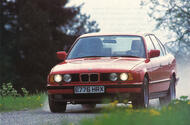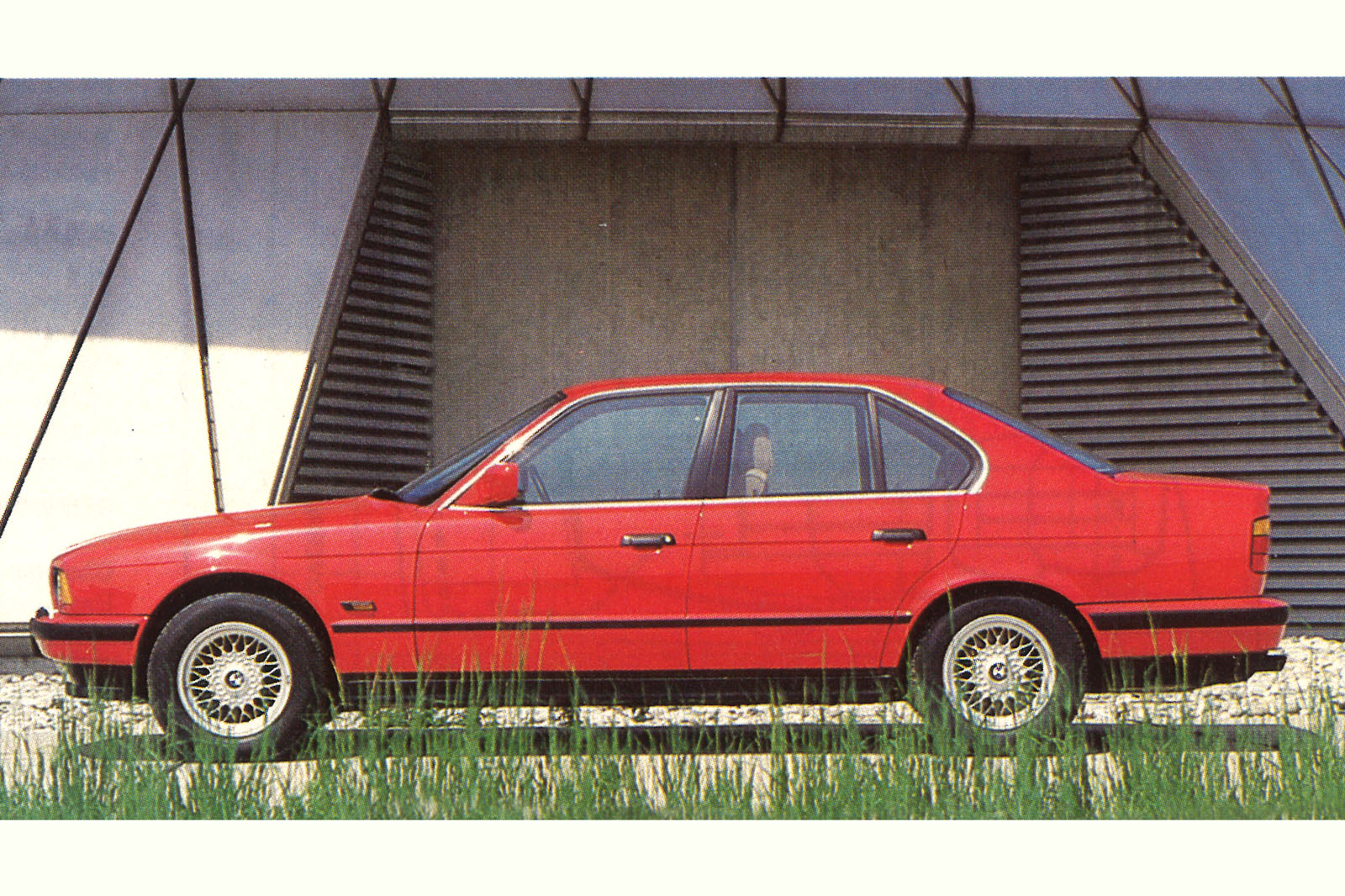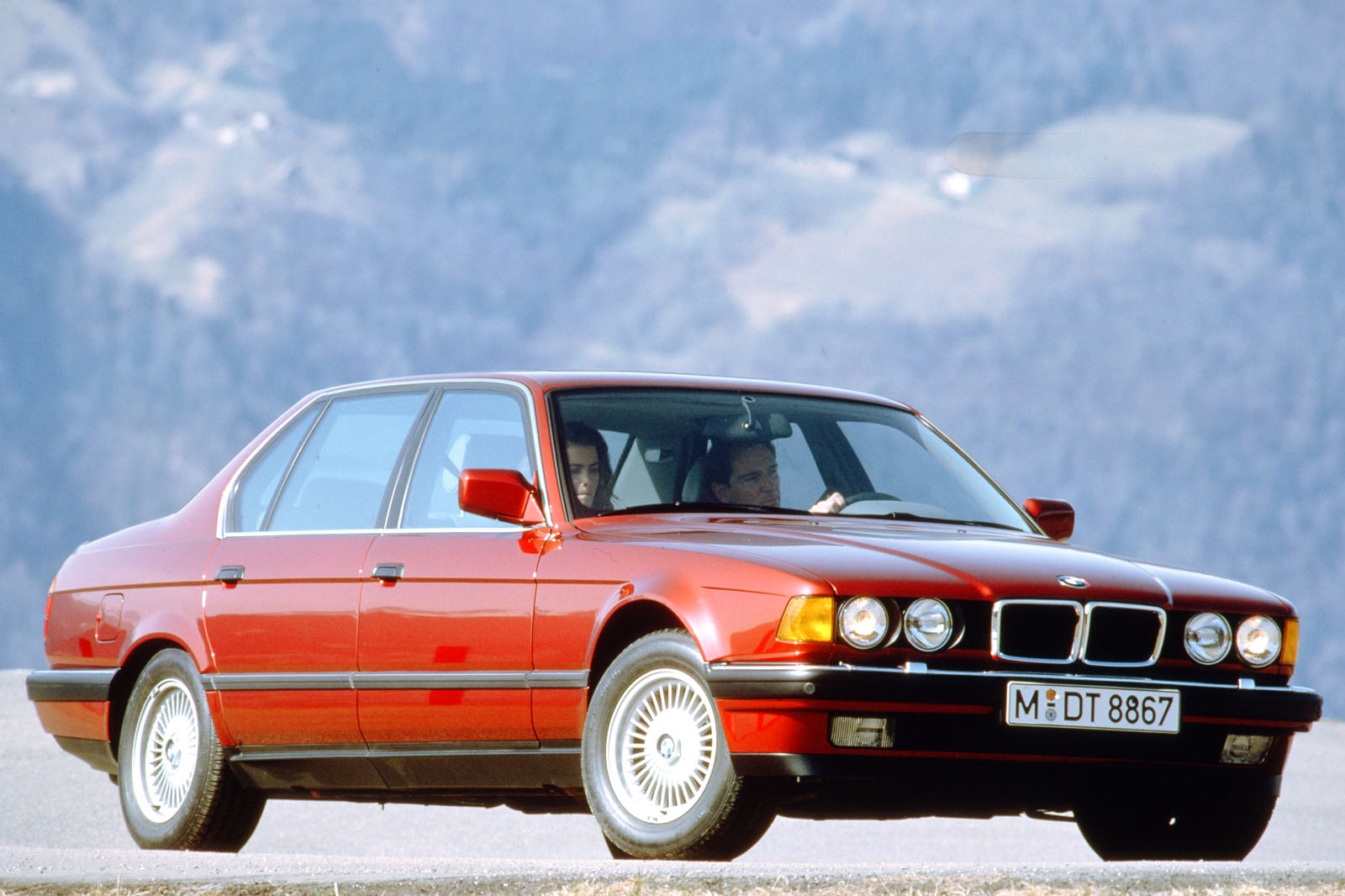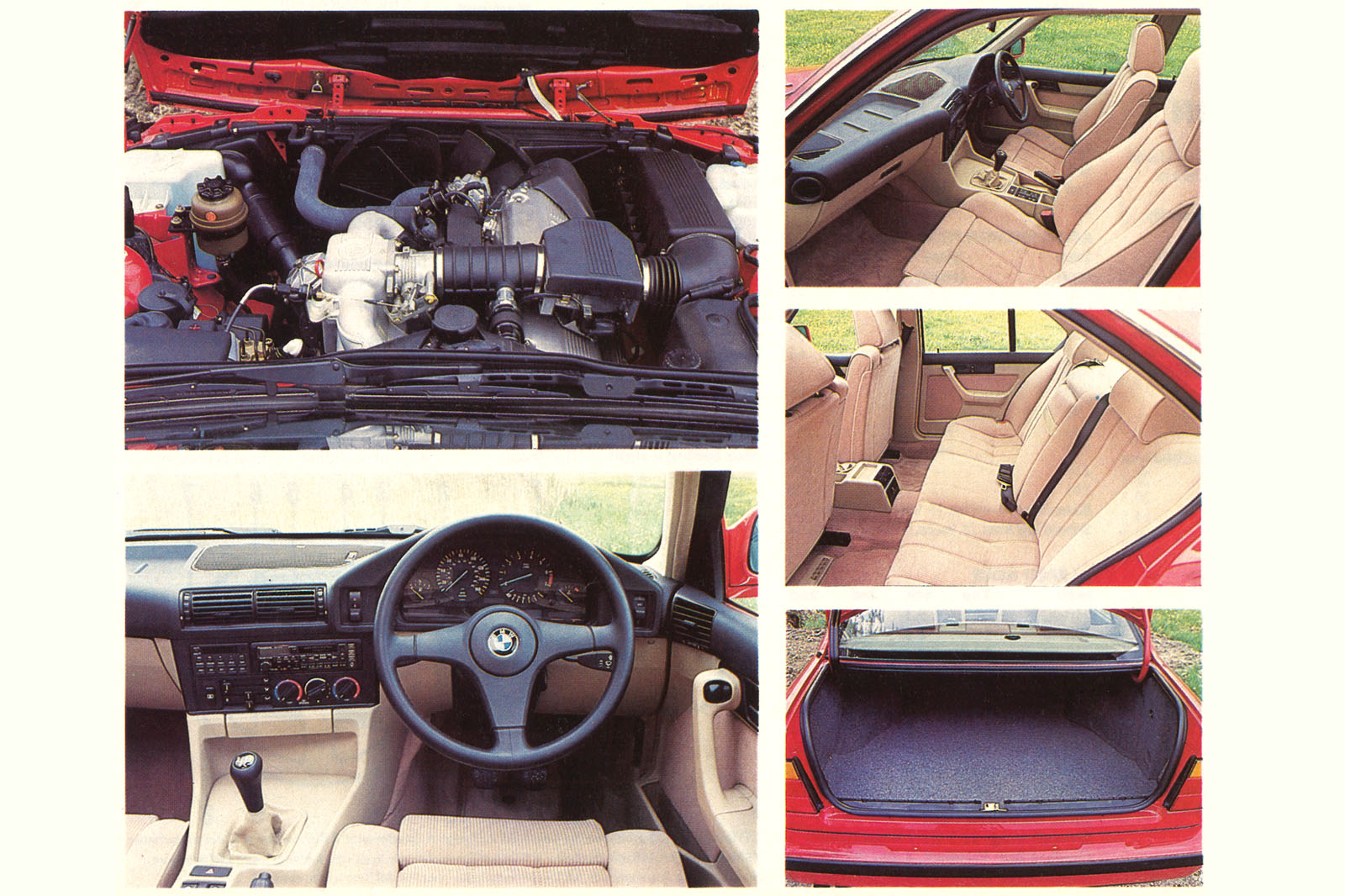Throwback Thursday: 1988 BMW 535i first drive
 Our first drive of the E34-generation BMW 5 Series came in the range-topping, 3.5-litre six-cylinder 535i model
Our first drive of the E34-generation BMW 5 Series came in the range-topping, 3.5-litre six-cylinder 535i model
The E34 BMW 5 Series was the executive saloon to beat during its decade of service and noted for its exemplary reliability.
The third-generation model made a great leap over the E28 which preceded it, having been developed in parallel with the E32 7 Series, with it echoing the larger model terms of both styling and engineering.
As Autocar put it on 25 May 1988 this was, "a combination that answers many of the criticisms levelled at previous 5 Series and in all but one respect – cabin room – provides BMW dealers with a solidly improved new model".
The E34 was longer, wider and more rigid than its predecessor (some things never change) while its low nose, wedge-shaped profile and coupé-like rear provided an 18% improvement in aerodynamic efficiency.
 Over the car's life there were to be myriad engine variations – some developed from those used in the E28, some new to the model. These ranged from a 111bhp 1.8-litre petrol in the 518i, through 2.0, 2.5, 3.0 and 3.5-litre units, up to a 282bhp 4.0-litre V8 in the 540i.
Over the car's life there were to be myriad engine variations – some developed from those used in the E28, some new to the model. These ranged from a 111bhp 1.8-litre petrol in the 518i, through 2.0, 2.5, 3.0 and 3.5-litre units, up to a 282bhp 4.0-litre V8 in the 540i.
At its UK launch in 1988, the E34 was available with the 2.0-litre (520i), 2.5-litre (525i), 3.0-litre (530i) and 3.5-litre (535i) units, all using six cylinders. Our first test drive of the car came in the range-topping 211bhp 535i.
"Subjectively, the 535i does not feel particularly quick," we said, "but a session at a high-speed testing bowl proved otherwise; we recorded a mean maximum of 141mph, which corresponds to 5620rpm.
"Drop the clutch at 4500rpm and the 535i powers itself off the line in a pleasant and controllable fashion, helped by the optional limited-slip differential fitted to our test car. Quickly slip into second and the rear wheels screech for mercy, having reached 30mph in an impressive 2.6sec.
 "The slick and precise 'box makes the second-to-third change quick and easy, and 60mph is reached in 7.4sec.
"The slick and precise 'box makes the second-to-third change quick and easy, and 60mph is reached in 7.4sec.
"Where the 535i really excels, however, is through the gears. It's super smooth and tractable, with a flat torque curve.
"The reason it does not feel quick is because of the smooth, quiet way it achieves its performance. It does not shout from the rooftops; it just gets on with the job."
Fuel economy came out relatively well, too, with around 25mpg expected in normal driving.
"The 535i's power-assisted recirculating ball steering is well weighted at low speeds and has enough feedback at higher speeds to satisfy most tastes, but there is a slight lack of feel when cruising in the straight-ahead position," we continued.
"BMW's engineers have done a marvellous job in balancing the ride and handling equation on the 535i. They have managed to produce a high-performance saloon car which has a generally absorbent ride while retaining neutral handling characteristics and keeping body roll well under control during hard cornering.
 "Power the 535i into a corner and it exhibits slight understeer which can be neutralised by backing off the throttle a little. It can be provoked into a power-oversteer stance and on a dry road surface this turns out to be very controllable."
"Power the 535i into a corner and it exhibits slight understeer which can be neutralised by backing off the throttle a little. It can be provoked into a power-oversteer stance and on a dry road surface this turns out to be very controllable."
Refinement had been a key objective for BMW when developing the E34. To this end, it had given the car 100lb of sound-deadening material in the interior trim and under the bonnet, flush-fitting windows and three-piece door seals.
Their efforts paid off, as we found back in 1988: "In the past, we have often criticised BMWs for the amount of road noise, tyre roar and bump-thump evident, even at low speeds. This is not the case with the 535i.
"Not only are you able to hold a conversation inside even at maximum speed, but also the engine is one of the smoothest and quietest units on the market. It is well isolated from the passenger compartment in terms of both noise and vibration and it is only at the top of the rev range that exhaust resonance becomes evident. A masterpiece."
Given the E34's relationship to the 7 Series luxury car and the positioning of the 535i within the range, the interior should have been classy as could be.
 Indeed, it was, with us describing it as "functional rather than gimmicky". "The driver is well taken care of in the 535i in terms of comfort, information and ergonomics," we said.
Indeed, it was, with us describing it as "functional rather than gimmicky". "The driver is well taken care of in the 535i in terms of comfort, information and ergonomics," we said.
"Our car's optional sports seats are hard, contoured and supportive. They're worth every penny, although some might find them a bit on the hard side.
"The relationship between steering wheel, seat, pedals and gearlever is perfect. Instrumentation is analogue, clear and easily visible."
Our one criticism of the E34, however, was its interior space, with us finding it to be more claustrophobic than the E28 despite having larger internal dimensions. This was because of the more steeply raked front and rear screens and deeper dashboard.
However, it was still not cramped inside. "There is ample head, leg and elbow room for people up to 6ft tall," we said. "Head room in the rear is good, although leg room can be restrictive if those in front are tall.
"Luggage space in the boot is almost identical to that of the old 5 Series."

How did this revolutionary 5 Series fare, then, compared with its predecessor?
"The 535i is one of the finest BMWs we have ever driven,' we concluded. "It's superbly engineered, with a very high standard of fit and finish, has deceptively good performance with brakes to match and reasonably good fuel consumption.
"BMW has managed to give the 535i an almost exact 50/50 weight distribution and a ride and handling compromise that is beautifully balanced to give a responsive, sporty but subtle ride quality while keeping body roll well controlled.
"Our one minor criticism is the slight shortage of room for the rear passengers, but despite this, the 535i is a splendid car for travelling long distances at high speed."
In light of that, we felt that the E34 dispatched its rival contingent - primary among it the Mercedes-Benz W124, Jaguar XJ6 and Saab 9000 - with ease, signing off with: "The 535i does not come cheap, but if you want quality, you have to pay for it".
Comments
Post a Comment